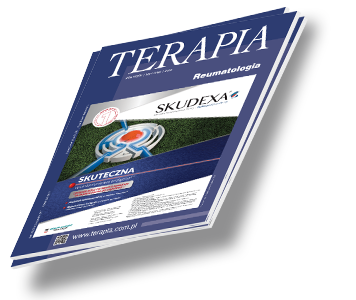W gabinecie lekarza rodzinnego Terapia 2020, 6 ( 389 ) : 112 - 118
Leki prokinetyczne w zaburzeniach motoryki i zespole rozrostu bakteryjnego jelita cienkiego
Prokinetics use in motility disorders and small intestinal bacterial overgrowth
Leki prokinetyczne poprzez wpływ na mechanizmy neurohormonalne pobudzają motorykę przewodu pokarmowego, przyspieszając opróżnianie żołądkowe i skracając czas pasażu jelitowego (1). Prokinetyki są szeroko stosowane w chorobach czynnościowych górnego odcinka przewodu pokarmowego, jednak mogą mieć korzystny wpływ na zaburzenia motoryki także jego dolnej części, zwłaszcza u chorych na niedoczynność tarczycy, chorobę Parkinsona, cukrzycę lub twardzinę.

Zaloguj się i przeczytaj bezpłatnie całą treść artykułu.
Nie masz jeszcze konta dostępowego?
Zarejestruj się bezpłatnie, a otrzymasz:
* dostęp do wszystkich doniesień oraz pełnych tekstów artykułów naukowych w naszej Czytelni,
* prawo do bezpłatnego otrzymywania newslettera "Aktualności TERAPIA" z przeglądem interesujących i przydatnych wiadomości ze świata medycyny oraz systemu ochrony zdrowia w Polsce i na świecie,
* możliwość komentowania bieżących wydarzeń oraz udziału w ciekawych quizach i konkursach.
Zapraszamy serdecznie, dołącz do naszej społeczności.



Dodaj komentarz